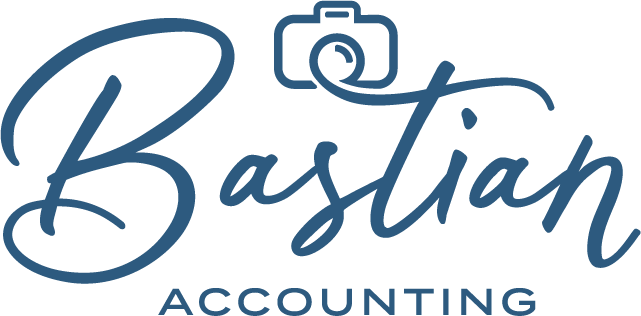Estimated Tax Payments for Photographers
Want help with estimated tax payments? Inside the Financially Focused Collective, we dive deep into tax planning and estimated payments. You'll learn how to calculate your quarterly estimates, use Tax Planner Pro to forecast your tax liability, and create a cash flow strategy that works for your photography business. Plus, get access to monthly coaching calls where you can get your tax questions answered in real-time.
Learn more about the Financially Focused Collective here → [Financially Focused Collective]
What the heck are estimated tax payments? Did you know that you should be making those? It's not a choice. It's a requirement. There are hefty penalties and fines for those under-paid and non-paid estimated tax payments. Today, I'm going to walk you through what you need to know about estimated tax payments for your photographers, so let's go.
Taxes for Photographers
Taxes are a pay-as-you-go type of deal. If you think back to a time where maybe you still have a part-time job or your spouse is working, when you had a paycheck and you looked at your pay stub, there would be all these taxes withheld, and then your employer would take that money and pay those taxes on your behalf as you earned the money. Then you would file your tax return, and you would get back any of that you overpaid, or you might owe a little bit if you underpaid. That calculation is done, when you're employed, by filling out a W-4 that tells your employer, basically, how to calculate your paycheck so that you're paying the right amount as you go.
Self-Employed Taxes for Photographers
When you're self-employed, you still need to pay as you go, and that is where quarterly estimated tax payments come in. There are four payments due each year, and they're due April 15th, June 15th, September 15th, and January 15th of the next tax year. As long as you have all of your payments paid by January 15th of that next tax year... For example, for 2020, your last payment or all your payments should be made by January 15th, 2021. Then you should be okay as long as you pay enough when it comes to penalties.
How Do You Figure Estimated Taxes for Photographers
How do you figure out how much you should be paying for these estimated tax payments? You can use form 1040-ES, which I've linked here for you. This is a worksheet that you work through to figure out how much your quarterly estimated tax payment should be for that particular quarter. Then you'll want to keep a record of those payments and the dates that you made them.
How Do You Pay Your Estimated Taxes
"Well, how do you make the payments?" you ask. You can send a check to the IRS. I encourage you to make sure that you put your name and social security number of the taxpayer on your tax return in the memo. If your spouse is listed first on the tax return, it needs to be their information so that, when the IRS gets it, they put it to the right account. I have seen numerous times where the right information was not on there correctly or not on there at all, and the IRS put it out into nothing and sort of held it there until the taxpayer called saying, "Where are my estimated payments? I paid them," because they received a letter saying they owed the money. Then, after many hours on the phone with the IRS, were we able to connect those payments with that actual tax return. Make sure your memo has the taxpayer, so whoever's listed first, social security number and name so it gets put on the right account. You can also pay it online through their EFTPS system. You can see a history of your payments and pay electronically online.
Penalties for Estimated Taxes
It's important to know there are penalties for underpayment and nonpayment of your quarterly estimated tax payments. You want to make sure you are calculating as accurately as you can to avoid any of these penalties. It's also important to know that quarterly estimated tax payments are not an option or a proactive move. They are required. You need to be making those if you're self-employed because you're making income, but you need to be paying taxes as you go.
Estimated Taxes for the State
You should also note I have just talked to you about the IRS portion, but if you are in a state that has state income tax, you need to figure out what your state requires for estimated payments. You can go to your state website and search for estimated payment information to figure out what the schedule is and what's required to make sure you're making those as well.
Estimated Taxes and Your Tax Return
When you file your tax return, you want to make sure, whether you do it yourself or you have someone do it, that you give them a list of the dates and payments that you made so they can account for those payments when filing the return. Any overpayment that you made will come back to you in the form of a tax return, and if you calculate a little off, you may have to owe a little money, and you might pay a few penalties on the amount that you owe because you underpaid.This is important information. A lot of times, I feel like people think that estimated payments are a good idea or sort of an option, and they're not. It's the best way to be proactive rather than reactive when it comes to your tax situation.


